I've explored 13 ghost towns around the world. Here are 9 of the spookiest things I've encountered.
Monica Humphries

- From New Zealand to Colorado, I've explored more than a dozen ghost towns.
- Along the way, I've encountered my fair share of eerie and spooky spottings.
There's a certain thrill I get when I step into a ghost town and find eerie remnants of the past. I've seen peeling floral wallpaper, a line of rusting Pepsi cans, and stumbled upon bathtubs coated in decades worth of lichen. These discoveries are fascinating, but I keep coming back for the sense of fear these places spark in me.
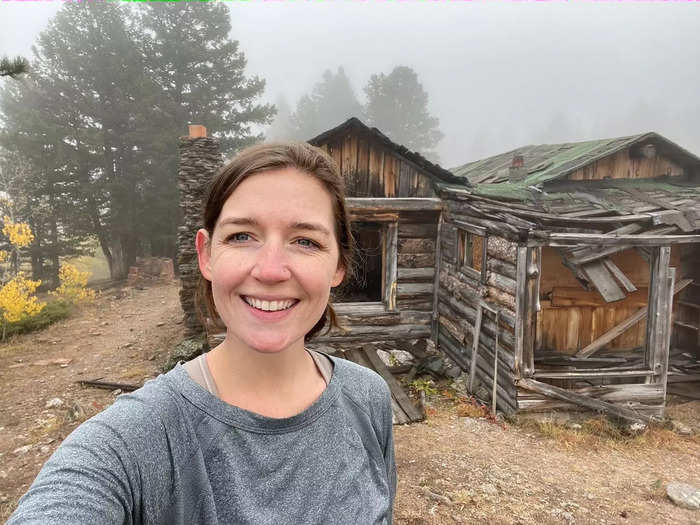
There are some people who can't understand why others enjoy haunted houses, scary movies, or the thrill of being spooked.
I am not one of those people.
Instead, I hunt down the experience. And as I've grown older, I turn to new places in search of fear. Every sound, every closed door, and every dark corner sparks a push-and-pull of curiosity and dread.
Ghost towns are where I often find that feeling. In the last year, I've explored 13 ghost towns across the United States, New Zealand, and Australia.
As I wander into abandoned buildings, explore old mining equipment, and search among ruins, I spot clues into what life was once like in these ghost towns and let my imagination run wild.
And while I haven't been chased away by any ghosts — or humans for that matter — I still have encountered a few things that keep me up at night. Take a look.
A cross in the door frame of a ghost town in Utah was an unsettling reminder of its unusual past.
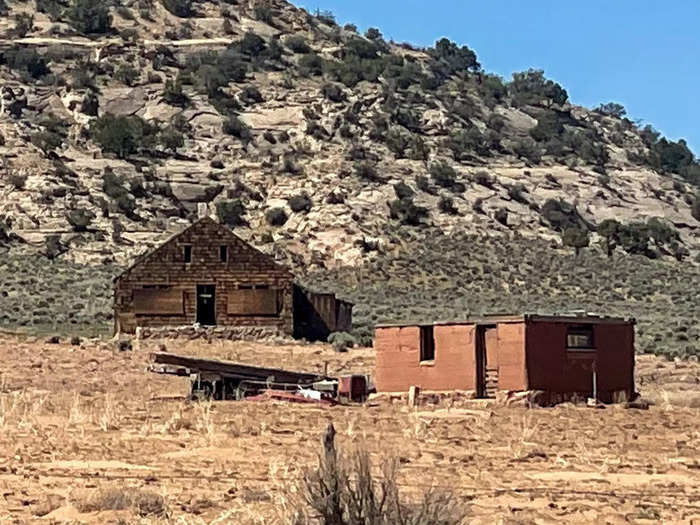
Heading to the southeast corner of Canyonlands National Park in Utah, visitors pass by a grouping of dilapidated cabins.
Those unassuming buildings were once home to a religious colony.
As I've previously reported, in 1933, the widower Marie Ogden believed that God spoke directly to her and told her that the world was ending. Everything would be destroyed except for a plot of land in Dry Valley, Utah, where she claimed Christ would have his second coming, according to Atlas Obscura.
Upon that plot in the valley, she formed Home of Truth, a 100-person commune. But in 1937, Ogden attempted to resurrect a dead commune member, according to The Grand Junction Daily Sentinel, and members became disenchanted with their leader. Many left and the abandoned buildings turned into a ghost town, according to the same source.
Today, not much remains of the ghost town, which sits on private property. As I walked around the outskirts of the private land, I did spot a floating cross hanging in a door frame, which served as an eerie reminder of the town's religious past.
The cross made me anxious to know what was inside each of the sun-bleached buildings. I wondered if there were more bodies or what other relics remained from Ogden's beliefs.
As I started to sweat, I debated whether it was from fear, or the Utah heat.
I thought a foggy hike on an old wagon road was one of the scariest parts of exploring a ghost town in Colorado.
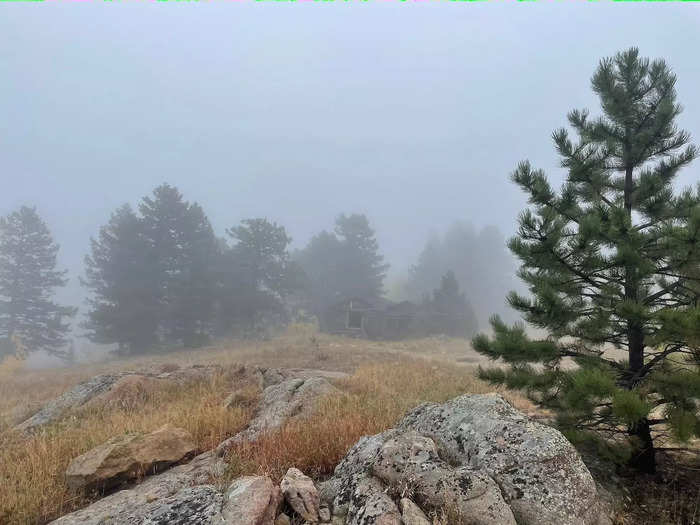
In Estes Park, Colorado, a 15-mile hike along the Homestead Meadows trail leads to a handful of ghost towns.
While perhaps bright on a spring day, I hiked an eight-mile portion of the trail in thick fog.
As I wandered along the trail, which was once an old wagon road, I couldn't see more than a few feet in front of me. In addition to the fog, the trail was completely empty. Rarely in Colorado do I find such a deserted trail as the state draws droves of outdoors enthusiasts, and I found it off putting.
The fog and emptiness combined left me thoroughly spooked, as it felt like I was about to walk into a doomed scene out of a horror movie.
The eerie setting was the ideal backdrop for relics I was soon to discover along the trail ...
At Irvin Homestead on the Homestead Meadows trail, I stepped inside a dimly-lit structure where the only thing remaining was a creepy, lichen-covered bathtub.
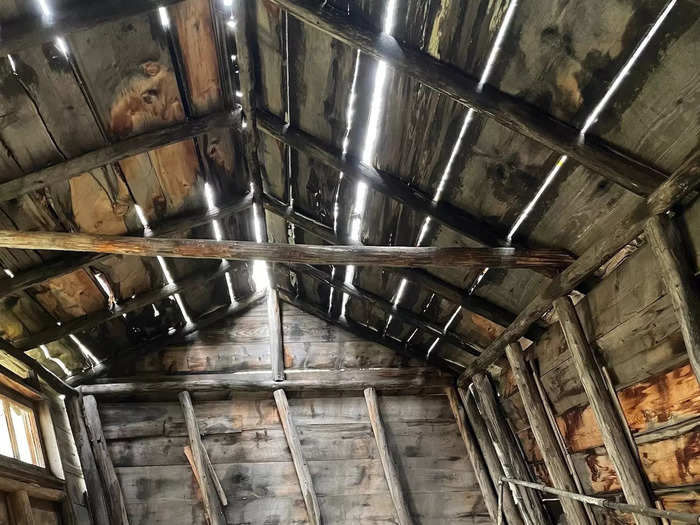
The ghost towns along the trail were built following the Homestead Act of 1862, which allowed people to claim ownership of land to build homes and communities, according to Uncover Colorado.
As for the Irvin Homestead, in 1889, landowner and settler, Frank Irvin arrived and started building the Irvin Homestead. Later, R.J. Nettleton moved onto the homestead to operate a sawmill and raise rabbits, according to Colorado's Incredible Backcountry Trails. Its last residents left in 1952, according to Uncover Colorado.
As the Irvin Homestead came into view through the fog, I spotted one building that now sits on unstable foundation. The entire building was slanted, and inside the neglected structure, I discovered a large bathtub inlaid into the floor.
It was unnerving to step inside the dimly-lit structure and only see the mold-covered tub. I wondered who the last person to use the bathhouse could've been.
In New Zealand, a forested opening at the end of Waiheke Island leads to underground tunnels built during World War II.
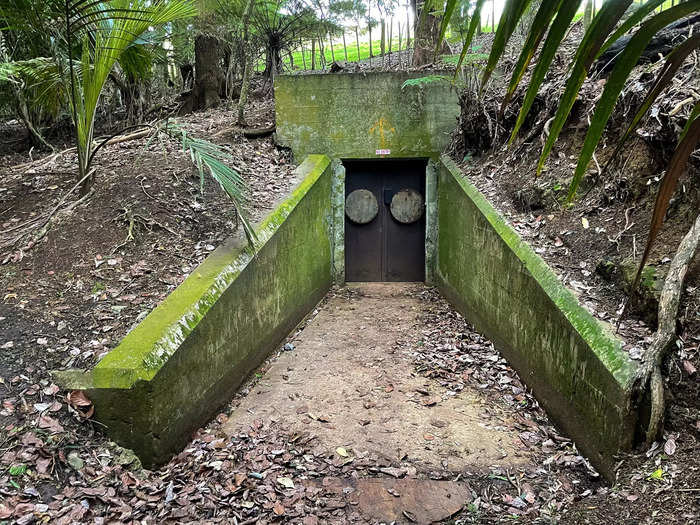
Off the coast of Auckland, New Zealand, is Waiheke Island, and on the island's eastern tip is Fort Stony Batter.
Today, it's a sheep pasture, but in 1942 during World War II, buildings were constructed in secrecy and the area became a coastal defense fortress, according to the fort's website. On the surface level, cement buildings dot the farmland. Underground, there is about a mile of tunnels filled with passages, chambers, and stairwells.
After the war, the area remained "abandoned and neglected" for six decades, the website states. Today, it's reopened to the public with the tunnels open to visitors from Wednesday to Sunday, and on Monday and Tuesday, the above-ground buildings and land is free for visitors to hike.
I visited on a Tuesday, which meant I couldn't go inside the tunnels but I could still explore a handful of structures.
It felt like I had the entire property to myself as I wandered around for a few hours. The only creatures accompanying me were sheep, and I roamed the property without coming across another soul.
The fort's website also states that locals used to explore the property and its tunnels in the darkness. As I passed by gun emplacements and the foundation of a former workshop, which I identified using signs on the property, my imagination went wild picturing who — or what — could come out of the tunnels.
I got shivers as I descended the steps of a basement at the Dearfield ghost town in Colorado.
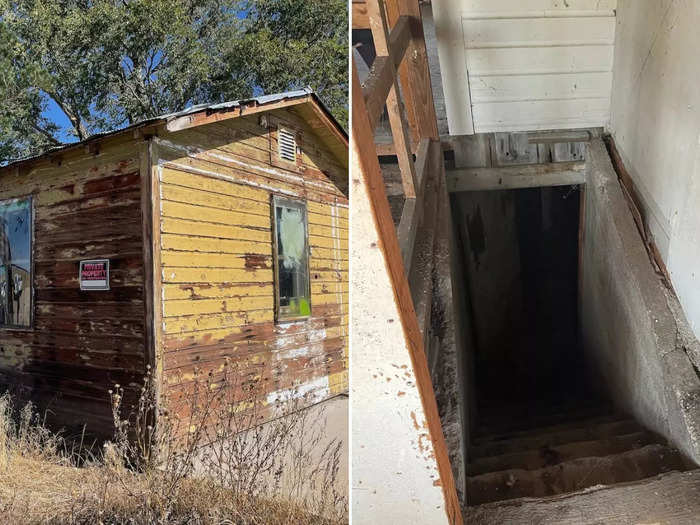
The abandoned buildings that once made up Dearfield, Colorado, play a key role in Colorado's history.
Entrepreneur Oliver Toussaint (OT) Jackson was tired of seeing the lack of economic and social progress for his fellow Black community in Denver, Colorado, Robert Brunswig, an anthropology professor at the University of Northern Colorado, previously told Insider. So in 1910, he founded Dearfield, which offered Black middle-class people a path to self-sufficiency, Brunswig said.
The town thrived until the 1930s when rainfall vanished, farmland dried up, and Dearfield became one of the dozens of towns eradicated in the aftermath of the Dust Bowl and the Great Depression, Brunswig said.
I explored the ghost town's four remaining structures, and as I entered one building, it was clear people had been there relatively recently. Spray paint covered the walls and broken glass scattered the floor.
Near the entrance, I spotted steps leading down into a basement. I was hesitant to descend but curiosity got the best of me.
Without any electricity, I shined my phone's flashlight and anticipated a scare. Luckily, there wasn't anything — or anyone — to frighten me. Instead, cobwebs and dust coated the basement's empty shelves.
Even though the dark room was deserted, I was spooked and quickly retreated back up to safety.
A tourist attraction by day, I thought Paronella in Australia turned into a spooky park at night.
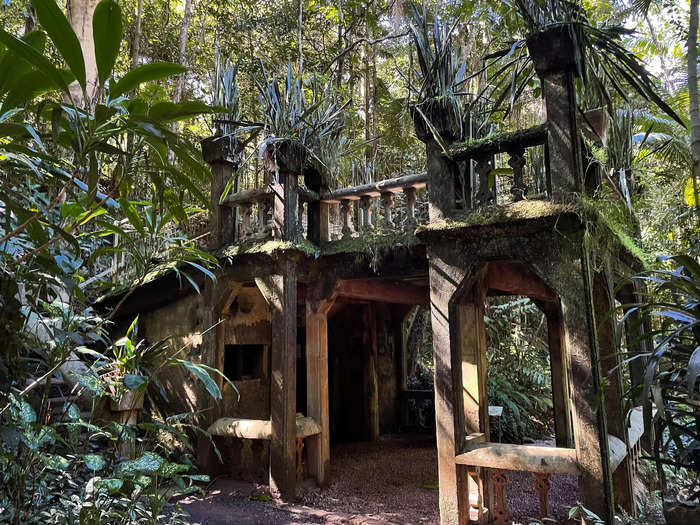
Known as a top tourist destination in Queensland, Australia, Paronella Park attracts hundreds of visitors every day to explore the property's abandoned stone buildings, owner Mark Evans told Insider.
The buildings, which are now coated in fuzzy, green moss, were once home to José Paronella, who dreamed of building a castle in Australia's lush rainforest, Evans said.
Paronella succeeded and opened a castle along with a ballroom, café, gardens, and other buildings for the public to enjoy in 1935, Evans explained.
In 1948, José died of cancer and left the castle and its surrounding buildings to his family. Eventually, in 1977, the family sold the land and its abandoned buildings. Mark and Judy Evans purchased the land in 1993 and reopened it as a tourist attraction.
I stopped by to chat with Evans and wander through the property. Paronella Park was bustling in the early afternoon, but as the sun set, the majority of visitors were gone.
I, on the other hand, stayed behind for a night tour.
That's when the mood of the property shifted to spooky. As the sun disappeared, I noticed that the lush forest turned dark and the moss-covered buildings blended seamlessly into nature.
After the tour, visitors have free reign to explore the property. I meandered in the dark, where every sound, smell, and shape had me on edge. I wasn't familiar with nighttime in Queensland, and I wasn't sure what animals I might encounter ...
... But the scariest part of Paronella Park, I thought, was a tunnel that is now home to bats.
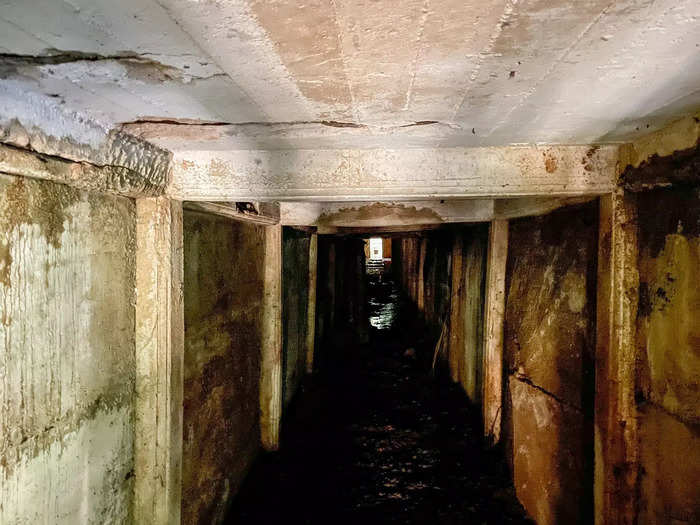
As I approached a castle-like structure, sounds slowly got louder and louder. Along with the crescendoing noise came an intensifying stench.
I realized I was approaching what is most likely the most populated part of the park — the tunnel of love, which is home to a large population of bats. A tour guide explained earlier that José built a tunnel into a small hill so he could access a nearby waterfall, which he named after his daughter, Teresa.
Today, the tunnel is closed to protect the bats and their home. But visitors are still able to get close enough to hear their squeaking and flapping wings.
While I'm usually happy to encounter wildlife, bats in the darkness were not something I was eager to see. As I peered into the tunnel, I couldn't see any, but I did smell and hear them.
I'm not sure if it was the fear or the small that provoked me to leave, but I quickly fled from the tunnel to explore other parts of the abandoned property.
I've encountered three mine entrances that gave me a fright.
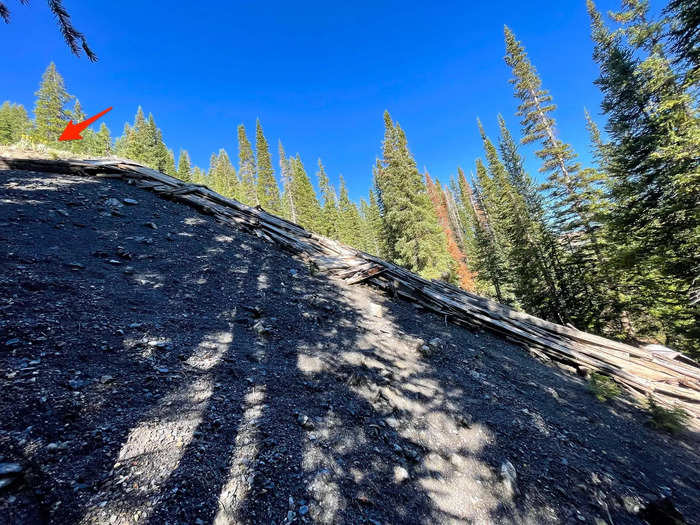
I've explored three Colorado ghost towns that were once mining towns with mine entrances on-site. While the towns themselves were safe to roam, the mine entrances were not. According to Colorado's Division of Reclamation Mining and Safety, the foundation around old mine entrances can be unstable and collapse.
I thought that possibility was terrifying. At any point, the mining tunnels below could collapse under my weight.
During a trip to the Boston Mine on the Mayflower Gulch Trail in Summit County, Colorado, I approached an entrance, but didn't get close enough to see the inside of the mine. And I definitely won't after hearing what happened to a few too-curious explorers.
The Division of Reclamation Mining and Safety reports that people "have encountered deadly odorless gases, fell down holes that opened under their weight, drowned in near-freezing pools of water at the bottom of shafts, and were buried in unpredictable cave-ins."
Those stories alone keep me up at night, and the next time I see a mine entrance, I'll be wise enough to stay away.
Ironton near Ouray, Colorado, had ghostly empty picture frames throughout its buildings.
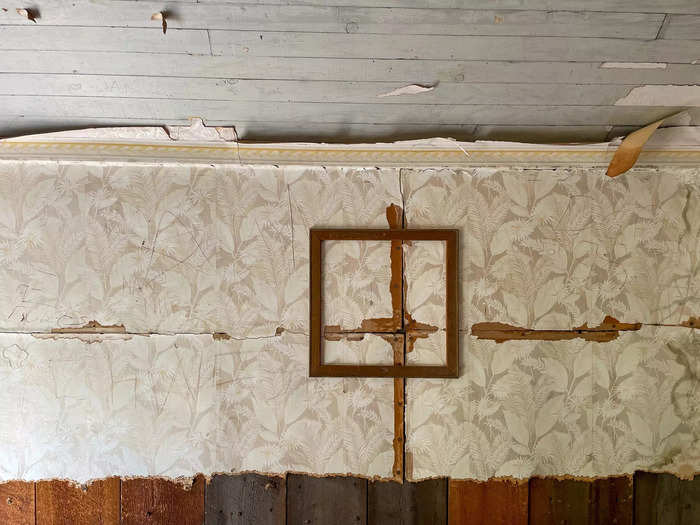
Ironton, near the mountain town of Ouray, Colorado, was once a bustling mining town. Within a year of being founded in 1883, the town had more than 100 buildings including a schoolhouse, brothels, saloons, and churches, a sign on the property said.
During the summers, almost 1,000 people lived in the mining town, which was a popular supply point for a nearby mountain that was mined for silver, the sign also stated. But when the price of silver plummeted in 1893, most of the miners left. The town had a resurgence in the early 1900s, but the aftermath of the Great Depression left Ironton a ghost town, the sign explained.
Today, a handful of buildings remain on the property. While some old cabins are now piles of wood, I spotted other buildings that were standing tall.
I noticed that almost every building had been completely cleared out. The only thing remaining on walls in multiple buildings were old, empty picture frames.
The frames were identical across buildings and I questioned whether they were new or old and wondered what pictures originally filled them — and why the pictures were gone, but they remained.
A year later and I'm still on the hunt for ghost towns and their accompanying fear.
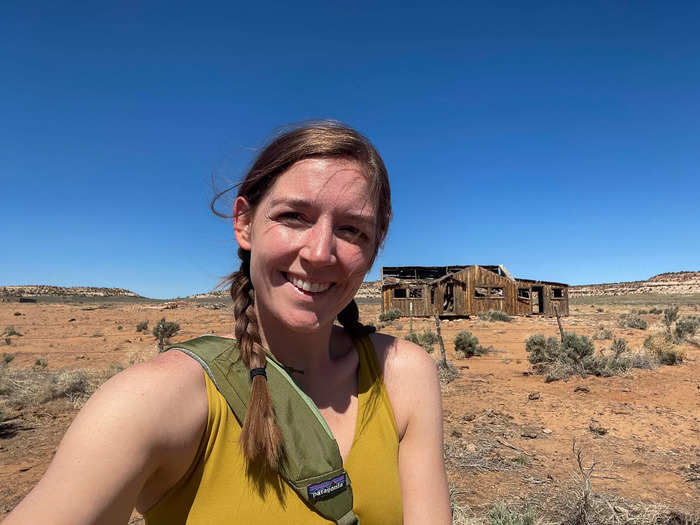
I anxiously look forward to adding more ghost towns to my growing list of places I've visited and hope to add more discoveries — and perhaps a few spooky sightings.
Popular Right Now
Popular Keywords
Advertisement